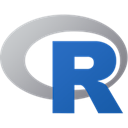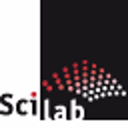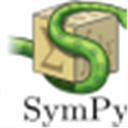Unlocking New Possibilities: The Best Cadabra Alternatives
Cadabra is a powerful computer algebra system (CAS) specifically designed for solving complex problems in field theory. With its extensive functionality for tensor computer algebra, multi-term symmetries, fermions, Clifford algebras, and more, Cadabra has become an invaluable tool for researchers and academics. However, like any specialized software, users may seek alternatives due to various reasons, including specific feature requirements, platform compatibility, pricing, or the desire for open-source solutions. This article explores the top Cadabra alternatives that offer similar or complementary functionalities for symbolic and numerical computation.
Top Cadabra Alternatives
While Cadabra excels in its niche, a wide array of excellent software systems can cater to different needs in scientific computing, symbolic manipulation, and data analysis. Below, we delve into some of the most prominent alternatives worth considering.

GNU Octave
GNU Octave is a compelling open-source alternative to Cadabra, particularly for users focused on numerical computations. It's largely compatible with MATLAB, making it an excellent choice for those familiar with that environment. Available for Free, Open Source, Mac, Windows, Linux, and BSD, Octave includes features like ANOVA test, providing a versatile platform for a wide range of scientific and engineering tasks.

MATLAB
MATLAB is an industry-standard commercial computing environment and programming language for numerical computation. While Cadabra focuses on field theory, MATLAB provides a broader platform for various mathematical and engineering applications. It is available on Commercial, Mac, Windows, Linux, Web, Android, iPhone, and iPad, offering extensive features such as File-sync, Simulink, Batch plotting, and an Embedded debugger.

R (programming language)
R is a free and open-source software environment specifically designed for statistical computing and graphics. While Cadabra excels in symbolic manipulation for field theory, R provides a robust platform for data analysis, statistical modeling, and visualization. It's a GNU project available on Free, Open Source, Mac, Windows, Linux, and BSD platforms, featuring Automatic data loading and Data Mining capabilities.

Sage
Sage is a free, open-source mathematics software system licensed under the GPL, making it a compelling Cadabra alternative for those seeking a comprehensive, community-driven solution. It uniquely combines the power of many existing open-source packages into a common Python-based interface. Sage is available for Free, Open Source, Mac, Windows, Linux, and Web platforms, and notably includes robust Symbolic Computation features.

Mathematica
Mathematica is a definitive commercial technical computing system that spans a vast array of disciplines, including machine learning, neural networks, data science, and visualizations. While Cadabra specializes in field theory, Mathematica offers a broader, integrated environment for symbolic and numerical computation. It is available on Commercial, Mac, Windows, Linux, and Web platforms, boasting features like Symbolic Computation, Calculus solving, Constructive geometry, Equation solving, Graphing calculator, Algebra, and Graphical components.

Scilab
Scilab is a free and open-source scientific software package for numerical computations, providing a powerful open computing environment for engineering and scientific applications. As a Cadabra alternative, it focuses more on numerical problem-solving rather than specialized field theory. Scilab is available on Free, Open Source, Mac, Windows, and Linux platforms.

Maxima
Maxima is a powerful free and open-source system for the manipulation of symbolic and numerical expressions, making it a strong Cadabra alternative for users prioritizing symbolic computation. It supports differentiation, integration, Taylor series, Laplace transforms, and more. Maxima is available on Free, Open Source, Mac, Windows, and Linux, and notably features Symbolic Computation and Algebra.

wxMaxima
wxMaxima provides a user-friendly document-based graphical interface for the Maxima computer algebra system, significantly enhancing its usability as a Cadabra alternative for symbolic manipulation. It leverages wxWidgets and runs natively on Free, Open Source, Mac, Windows, and Linux, offering strong Algebra capabilities through its intuitive interface.

Xcos
Xcos is a graphical editor for designing hybrid dynamical systems models, closely integrated with Scilab. While Cadabra focuses on field theory's symbolic aspects, Xcos is a compelling Cadabra alternative for visual modeling and simulation. It allows users to design, load, save, compile, and simulate models, featuring Palettes Browser and is available on Free, Open Source, Mac, Windows, and Linux platforms.

SymPy
SymPy is a Python library for symbolic computation, aiming to become a full-featured computer algebra system with a simple code base. For Python developers seeking a flexible and extendable Cadabra alternative for symbolic math, SymPy is an excellent choice. It is Free and Open Source, available on Mac, Windows, and Linux, and includes features like Algebra, Education, Equation editor, Equation solving, Python integration, and Simulation capabilities.
The landscape of computational mathematics software is rich and varied. While Cadabra remains a specialist in field theory, these alternatives provide a spectrum of capabilities ranging from general-purpose numerical computation to specialized symbolic manipulation, data analysis, and visual modeling. We encourage you to explore these options and choose the best fit based on your specific project requirements, existing skill sets, and preferred development environment.